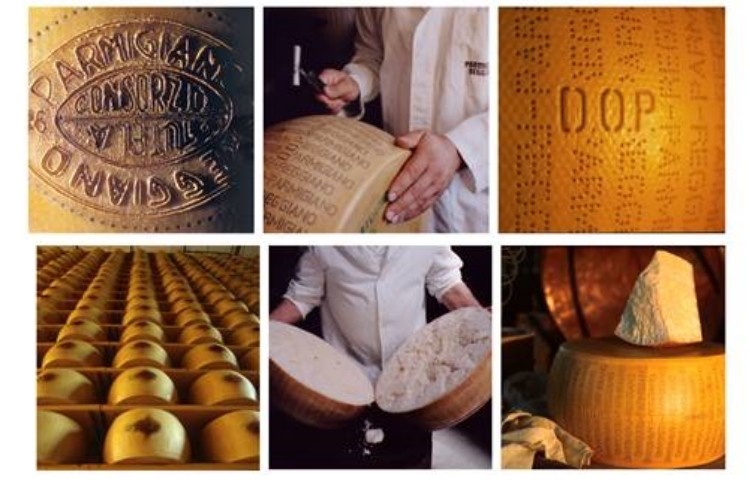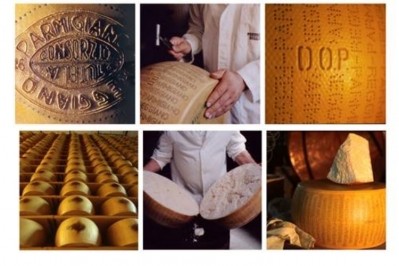New partnership boosts digital tracking technology for Parmigiano Reggiano

The new technology aims to deliver new levels of traceability, inventory tracking and control, product authentication, quality-assurance testing, product serialization, and consumer safety.
Nicola Bertinelli, president of the Parmigiano Reggiano Consortium, said, “As one of the world’s oldest and most famous cheeses, Parmigiano Reggiano is a symbol of high-quality Italian products. Since the Consortium was founded in 1934, we have aimed to convey the value of our product globally and distinguish it from similar-sounding products on the market that do not meet our strict requirements for production and area of origin. By being the first to incorporate these secure digital labels onto our cheese wheels, we can continue to ensure consumer safety, bringing the traceability and authentication of our products to meet industry 4.0 technological targets.”
Since 2002, a casein label with a unique and sequential alphanumeric code is applied to each Parmigiano Reggiano cheese wheel, but now p-Chip is launching a new line of secure, digital tracking labels for the industry, and the Parmigiano Reggiano Consortium is embedding these p-Chip micro transponders into 2D codes, QR codes, and/or data-matrix codes. The result is a food-safe digital tag that takes CFPR’s food safety and security a step beyond the government requirement.
Kaasmerk Matec and p-Chip Corporation partnered to complete this innovation program for a p-Chip device integrated into casein label, an industry-standard, protein-based type of food/cheese identification method. The innovation combines food-safe casein labels with the p-Chip micro transponder—a blockchain crypto-anchor that creates a digital “twin” for physical items. This scannable new food tag is smaller than a grain of salt and highly durable, delivering next-generation visibility and traceability to the Parmigiano Reggiano Consortium.
Joe Wagner, CEO of p-Chip Corporation, said, “We’re pleased to partner with a leading global brand as the Consorzio del Parmigiano Reggiano to bring world-class, disruptive tracing technology to the food industry. By integrating p-Chip micro transponders into Casein tags, the Parmigiano Reggiano Consortium can better control its inventory and protect and differentiate its products against look and sound-alike brands and have access to unmatchable track-and-trace technology to protect itself in the case of recalls or other issues. I look forward to working with Consorzio del Parmigiano Reggiano as they realize the full potential this technology holds for their business.”
Over the past two years, the Parmigiano Reggiano Consortium has conducted testing of the p-Chip/Kaasmerk Matec Casein label and approved the label’s technical use for the authentication and digital traceability of Parmigiano Reggiano cheese.
Winus Sloot, managing director of Kaasmerk Matec, said, “For more than 100 years, we’ve worked with artisan cheese producers to deliver casein cheesemarks that provide an invaluable level of protection for their recipes, helping to safeguard the passion and craftsmanship they bring to production of their cheeses. We are pleased to collaborate with p-Chip to develop this smart digital label that will track and trace the Parmigiano Reggiano Consortium’s bulk cheeses from start to finish, providing additional protection to both the Consortium as well as consumers, as the label is highly resistant to tampering.”
The new smart digital food labels will be added to 100,000 Parmigiano Reggiano bulk cheese wheels in the second quarter of 2022. This represents the final phase of large-scale "testing" before evaluating the possibility of extending this technology to the entire production of Parmigiano Reggiano.






